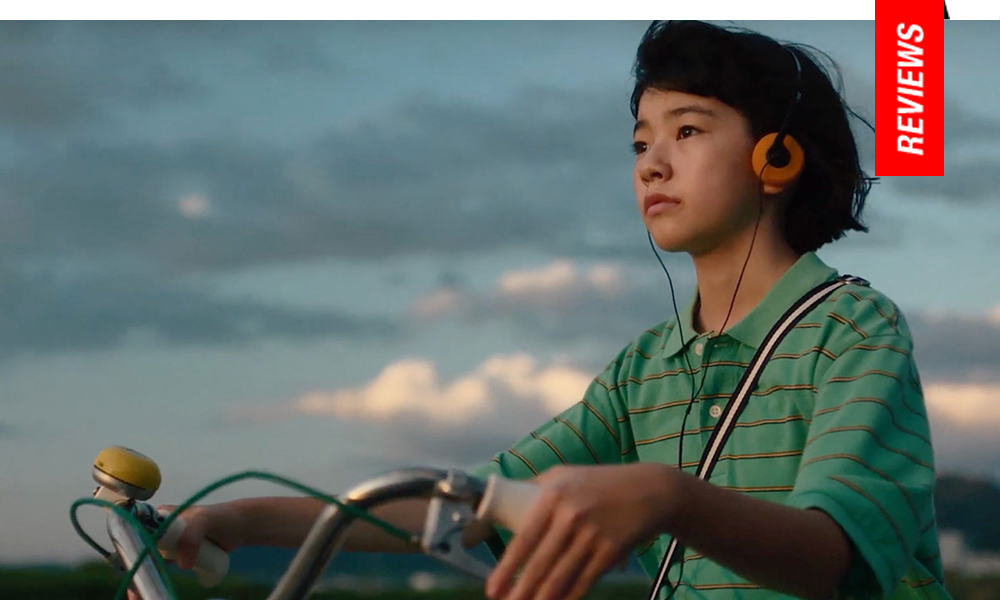Family of Straw: Hayakawa Paints Busy Coming-of-Age Portrait
Fuki (Suzuki) is the only child of Kuriko (Yumi Kawai) and Keiji Okita (Lily Franky). But her life is about to change significantly as her father’s late stage cancer lands him in the hospital where he is destined to spend his final days. Her mother, who has thrown herself into work with a savage abandon, finds her wings clipped due for supposedly untoward behavior. With both parents woefully distracted, she makes friends with a wealthy girl at school. Together they bond over experimenting with psychic exercises revolving around card tricks and mind games from a popular television show Fuki likes. However, Fuki’s presence in this household instigates the unearthing of some secrets which unravels them, and soon she’s left to her own devices again. An ad for a telephone dating service grabs her interest, and soon Fuki is corresponding with adult men on the phone.
As Renoir drifts towards its finish line, Hayakawa begins to adopt a tonality similar to an Ozu or Kore-eda with a Kyoshi Kurosawa virus lurking in the background. A serial killer of little girls opens the film, a child strangled in her bed (which is a theme also haunting Kei Ishikawa’s adaptation of Kazuo Ishuguro’s A Pale View of Hills, 2025), but this grisly tidbit becomes immediately eclipsed by the impending death of Fuki’s father. Kore-eda alum Lily Franky, who happens to be a rather elderly parent for a child so young, seems to have been the parent she felt closest to, allowing her to be left to her own devices when he’s checked out of the house.
Hayakawa begins to splinter Fuki’s story with how both parents are handling this inevitability. The frazzled Kurito, played by a likable Yumi Kawai, finds herself censured at work, an untimely promotion leading her to charges of ‘psychological oppression’ towards a subordinate. A stint in what’s essentially an anger management course leads her to a flirtation with a married handsome man who seems prone to ‘helping’ vulnerable women in Kuriko’s situation by offering them heavily discounted herbs and tinctures, which seem helpful for her dying husband. The man’s wife swiftly intervenes. Meanwhile, Keiji spends a significant sum on a scam miracle cure. While all of this transpires, Hayakawa deepens the wan theme on how vulnerable women and children attract devious entities as Fuki begins dabbling with a phone dating hotline, out of both boredom and natural curiosity. The service, popularized in the era and through the early 2000s, allowed for people to leave voice ads and respond to messages. Fuki begins a correspondence with a much older man, leading Renoir down its only tense elements when she agrees to meet the suspicious man, who seems to be aware of her age.
There are moments where Renoir is reminiscent of another femme centered film released in 1987, Hou Hsiao-hsien’s Daughter of the Nile, also about a daughter from a troubled family dabbling in criminal elements. But Hayakawa’s narrative isn’t so much experimental as it is unfocused. Fuki purchases a framed reprint of Renoir’s ‘Portrait of Mademoiselle Irene Cahen d’Anvers’ to hang in her father’s hospital room, a remnant which migrates back to her home after his death. The painting itself has a storied history, commissioned by a wealthy Parisian Jewish banker for his eldest daughter, which he was apparently unhappy with enough to relegate to the walls of the servants’ quarters. Eventually stolen by Nazis before it became exhibited in Paris, ‘Little Irene’ will be destined to haunt little Fuki’s subconscious (and perhaps would have made a more fitting title than Renoir, much like Lonergan’s Margaret, 2011). However, there’s a randomness which tends to complicate a fussy finale, as we see Fuki happy on a cruise ship for some reason before revisiting those excitable psychic talents, an escapist exercise which provided a welcome reprieve from the misery at home.
Reviewed on May 17th at the 2025 Cannes Film Festival (78th edition) – Competition. 118 Mins
★★½/☆☆☆☆☆
